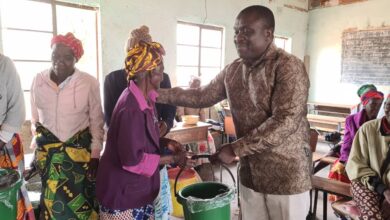Abantwana BoMzabalazo Slams Surge in Online Abuse Against Women: “Social Media Must Not Be a Weapon of Misogyny

Prominent civic organisation Abantwana BoMzabalazo, composed of sons and daughters of former ZPRA cadres, has issued a strong condemnation of what it calls a growing culture of online abuse and targeted defamation against young, accomplished Zimbabwean women.
In a strongly worded statement released Wednesday, the group expressed alarm at the “cowardly and malicious attacks” being carried out via anonymous social media accounts — often operated by men masquerading as women — which aim to discredit women in leadership, business, and public life.
“The pattern is clear,” said Abantwana BoMzabalazo Chairperson Mgcini Ncube. “What we’re witnessing is digital gender-based violence disguised as discourse. It is an orchestrated attempt to silence and shame women who have dared to rise.”
The organisation cited several high-profile women who have recently been subjected to degrading and unfounded attacks on social media. Among them is Advocate Fadzayi Mahere, who has faced relentless harassment, Linda Masarira, President of LEAD, whose critics have stooped to body-shaming and personal insults, and Tariro Gezi, a popular socialite whose personal dignity has been trampled through reckless commentary online.
Also highlighted was a disturbing attack on professional executive Rumbidzai Kanhukamwe, allegedly spearheaded by the social media handle @TafadzwaBambaninga. The accusations, described as “salacious innuendo,” were condemned as not only false but deeply damaging to her career and reputation.
“Such baseless character assassinations belong in shebeens, not in national discourse,” said Ncube. “They are attempts to erase the hard-earned success of women by dragging them through digital mud.”
The statement also referenced attacks on Getmore Mangundu, a successful entrepreneur, allegedly defamed by a user named Lynn Stactia. The common thread in these cases, the group claims, is a sinister trend where men hide behind female personas or fake accounts to smear influential women.
But the group didn’t stop there. Abantwana BoMzabalazo warned that this wave of online defamation is also being weaponised politically, dragging in top leaders with the intent to destabilise or scandalise. “Opposition leader Nelson Chamisa has been recklessly linked to certain women without proof, and even President Emmerson Mnangagwa’s name has been unfairly thrown into the mix,” reads the statement.
The organisation warned that such tactics not only degrade women but undermine national integrity and the reputation of high offices. “We cannot allow social media to become a battlefield where honourable people are lynched in the name of gossip,” the group said.
Abantwana BoMzabalazo has called on several bodies to act urgently:
The Zimbabwe Gender Commission to investigate these online attacks as a form of gender-based violence;
The Zimbabwe Human Rights Commission to protect citizens’ rights to dignity and freedom from harassment;
Regulatory and legislative bodies to develop frameworks to hold online offenders accountable, especially those using ghost accounts to spread slander.
The organisation also implored local media houses to exercise greater responsibility, urging journalists to offer a right of reply and refrain from sensationalising online rumours without due diligence.
“Zimbabwe’s women are not cannon fodder for digital warfare,” the statement concluded. “They have earned their place, and we will not allow this culture of intimidation to roll back the progress of decades.”




